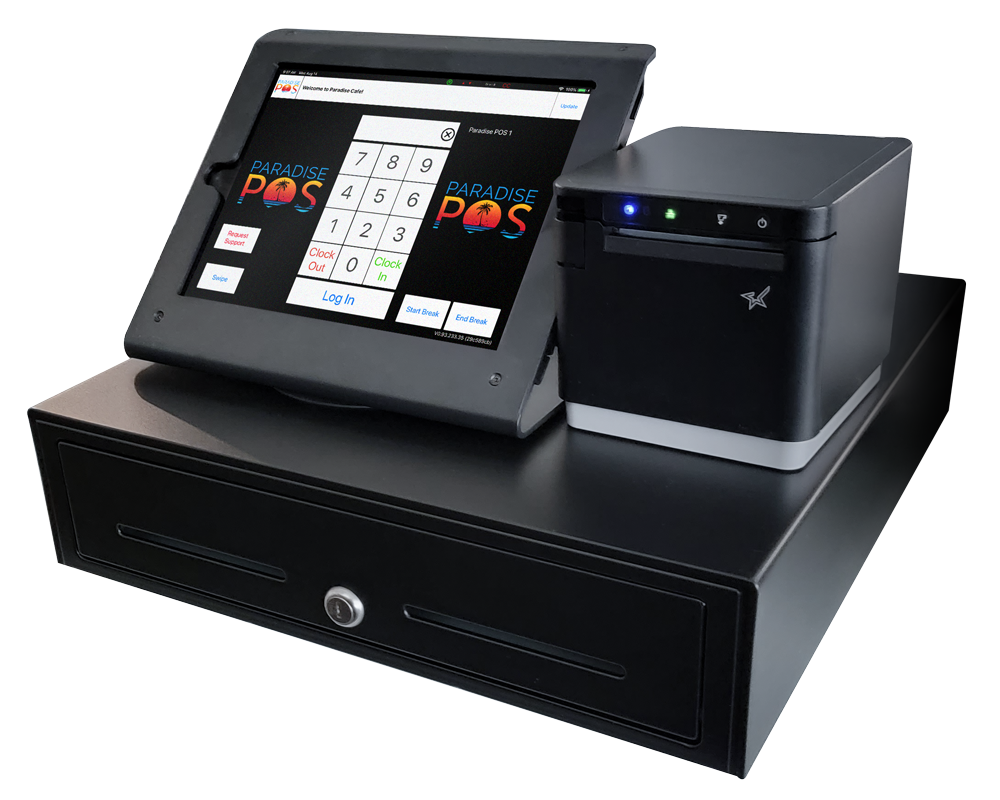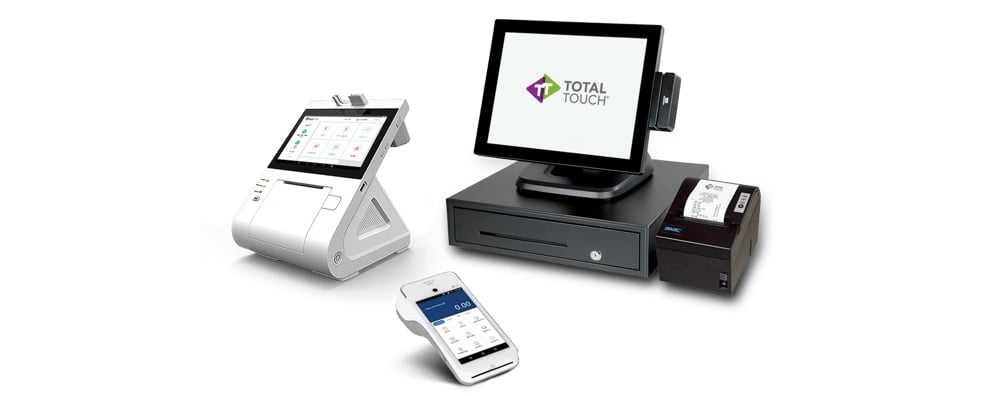Excitement About Pos Software
Excitement About Pos Software
Blog Article
9 Simple Techniques For Pos Software

Point of Sale Software: Retail Point-Of-Sale Solutions Streamline Deals
Some Known Details About Pos System For Small Business

Hardware Parts of a Point of Sale System What makes a POS system tick? It's not simply software application; the hardware plays a starring role. Think about it as the body to the software application's brain. Without the ideal hardware, even the most advanced POS software is simply a quite face. Essential POS Hardware So, here what are the must-haves? Let's break it down. The central processing unit, frequently a computer system or tablet, is the heart of the operation. The display or touchscreen show enables personnel to connect with the system. A barcode scanner accelerate the checkout procedure. Remember the days of by hand entering each code? The reliable invoice printer provides customers with a record of their purchase. A cash drawer keeps your cash safe and arranged. A card reader enables consumers to pay with credit or debit cards. Diving Deeper: Beyond the Basics However wait, there's more! Depending upon your company, you might require specialized hardware. For instance, a dining establishment may integrate kitchen area printers to relay orders, while a retailer might utilize label printers for item tagging. Ever wonder how your regional bakery instantly prints those delicious-looking labels? Choosing the Right Hardware: A Balancing Act Choosing the right hardware isn't practically buying the most costly equipment. It's about discovering the sweet area between performance, durability, and budget. A little organization just beginning may choose for a more standard setup, while a high-volume retailer will need robust, high-performance makers. Is it much better to purchase new or used? Consider your alternatives carefully. A new system provides the current innovation and service warranty protection, but a refurbished system can save you money. The Future of POS Hardware What does the future hold? Expect to see even more combination with mobile gadgets, biometric scanners for employee authentication, and advanced analytics control panels showed on bigger, clearer screens. Envision a world where inventory is automatically updated in real-time as products are scanned-- a world where you can track your very popular product from anywhere in the world. The possibilities are endless, and the hardware is continually developing to meet the needs of today's businesses. Are you ready to upgrade your point of sale system?
Software Characteristics and Capabilities: The Heart of Your POS System
Ever watch a skilled barista slide through a busy morning rush? Their secret isn't just caffeine; it's a seamless dance with their POS system. The software application is the conductor of your service symphony, managing whatever from sales to stock. What notes should you be listening for? What abilities really matter in today's market?
Inventory Management: Beyond Counting Beans
Forget spreadsheets that haunt your dreams. Modern POS systems offer real-time inventory tracking, informing you when your stock of artisanal coffee beans dips precariously low. Think about it as a digital guardian angel, preventing those awkward "Sorry, we're out!" minutes to consumers. What if you could likewise forecast demand based upon historic data? Lots of systems now use forecasting tools, a powerful weapon versus overstocking and lost sales. This assists prevent the dilemma of lacking popular products or collecting excess inventory of slow-moving products, both of which can constrain money flow and area.
Sales Reporting and Analytics: Decoding the Data
Sales information is the brand-new gold, and your POS system is the miner. Forget simply understanding just how much you sold today. Dive deep into the information to uncover patterns, identify your best-selling products, and understand customer behavior. Which menu item pairs perfectly with the day-to-day special? Which promotion resonated most with your clientele? These insights are not simply fascinating; they're actionable intelligence. Without trusted sales reporting, navigating the complexities of business decision-making ends up being like cruising without a compass, increasing the chance of errors and missed chances.
Consumer Relationship Management (CRM): Structure Bridges, Not Walls
Remembering a regular client's name and preferred order is captivating, however scaling that individual touch is challenging. POS systems with CRM capabilities permit you to track consumer purchase history, preferences, and even birthdays. Picture automatically using a discount rate on their birthday-- a little gesture that fosters loyalty and motivates repeat company. There is the prospective snag of poor data quality, which can lead to incorrect client profiles and ineffective marketing efforts.
Payment Processing: Improving the Transaction
The checkout experience can make or break a sale. Smooth integration with numerous payment techniques-- credit cards, mobile wallets, even copyright-- is non-negotiable. Can your system deal with split payments? Does it provide safe and secure tokenization to secure customer information? A cumbersome payment procedure resembles hitting a sour note in your organization symphony, possibly disrupting the whole performance. Making sure compatibility with developing payment innovations and adherence to security requirements are vital for keeping consumer trust and operational performance.
Worker Management: Keeping the Group in Sync
From clocking in and out to handling authorizations and tracking efficiency, worker management includes streamline operations and enhance accountability. Is scheduling a headache? Many POS systems use integrated scheduling tools, enhancing staffing levels based upon forecasted demand. A typical obstacle that is typically overlooked is the challenge of integrating worker management performances with payroll systems, which can lead to errors and inadequacies in wage estimations.
Advanced Features: Leveling Up Your Operations
- Table Management: Ideal for dining establishments, this feature permits you to imagine your dining space, track table status, and handle bookings.
- Loyalty Programs: Reward your best consumers and encourage repeat organization with incorporated commitment programs.
- Online Buying Integration: Effortlessly incorporate your POS system with online purchasing platforms to expand your reach.
Selecting the best POS system has to do with more than simply performance; it has to do with discovering a partner that can grow with your business. Consider your present needs, prepare for future development, and do not hesitate to ask the tough questions. The ideal software can transform your company from a chaotic cacophony into a harmonious masterpiece.
Industry-Specific POS System Applications
Think of the local bakery, bustling with early morning clients craving fresh croissants. A generic POS system might deal with transactions, however can it handle complex recipes, track ingredient inventory, or automatically adjust production schedules based on sales data? Probably not. That is where the beauty of industry-specific POS systems shines.
Restaurants and Hospitality
For busy restaurants, speed and accuracy are paramount. The number of times have you seen servers handling orders, modifications, and splitting expenses, all while trying to supply excellent service? A restaurant POS system streamlines these processes, permitting table management, kitchen order tickets, and even online ordering combination. These systems typically include functions like ingredient-level inventory tracking, vital for managing food expenses and lessening waste. Ever wonder why your favorite dish is often unavailable? It may come from a lack of appropriate stock management.
- Table Management
- Cooking Area Order Tickets
- Online Ordering Combination
- Ingredient-Level Inventory Tracking
Retail Solutions
Retail, with its diverse inventory and client interactions, demands a different set of tools. Picture a boutique clothing store struggling to keep an eye on sizes, colors, and seasonal collections using a standard checkout system. An industry-specific retail POS system offers features like barcode scanning, customer loyalty programs, and detailed sales reporting. These systems can even incorporate with e-commerce platforms, offering a smooth omnichannel experience for customers. Did you understand some retail POS systems can predict future sales trends based upon historical information? Now that is effective!
The Dangers of a Mismatch
Selecting the wrong POS system can create substantial operational difficulties. A clothes store utilizing a dining establishment POS, for example, would discover it unsuitable for handling stock with sizes and colors. The absence of correct reporting and analytics might result in misinformed acquiring decisions and lost profits. The result could be comparable to attempting to fit a square peg in a round hole.
Key Considerations
Selecting an industry-specific POS system requires mindful assessment. Consider your company's distinct requirements and operational workflows. Does the system incorporate with existing software? Does it use the essential reporting capabilities? Is it scalable to accommodate future growth? A well-chosen POS system is not just a transaction tool; it's a tactical property that can drive effectiveness, improve client satisfaction, and ultimately, boost your bottom line. Remember, it is a financial investment in your service's future, not just an expenditure.
Security Factors To Consider for Point of Sale Systems
Ever heard the tale of the mom-and-pop shop that lost whatever due to the fact that of a single, neglected security defect in their POS system!.?. !? It's a cautionary tale, and it highlights a critical element often eclipsed by the appeal of fancy features and streamlined operations. The reality is, a POS system is only as great as its security. What great is a system that crunches numbers in a flash if it permits lawbreakers to swipe customer's data simply as quickly?
The Vulnerability Minefield
The digital landscape is a battleground. Every POS system, despite size or elegance, is a prospective target. Are you truly got ready for the hazards prowling around the corner? The real pinch comes when you find that your outdated software application has a gaping hole that hackers can exploit, turning your service into an unwitting accomplice in identity theft. The difficulty is that hackers are crafty and are always changing their strategies.
Typical Security Spaces and Specialist Tips
- Weak Passwords: "Password123" isn't sufficing. Use strong, distinct passwords for all POS system accounts and alter them routinely. Two-factor authentication is a must.
- Unsecured Networks: Your Wi-Fi is like leaving the front door open. Protect your network with strong file encryption (WPA3 if possible) and consider a separate network for your POS system.
- Outdated Software: Software application vendors patch security holes all the time. Failing to update resembles inviting problem. Establish automated updates or schedule routine maintenance.
- Employee Training: Your personnel is your first line of defense. Train them to recognize phishing attempts, protect passwords, and report suspicious activity.
Information Encryption: Your Guard Against the Dark Arts
Think of data file encryption as a secret code. It scrambles sensitive info, like credit card numbers, making it unreadable to unapproved users. Without file encryption, your clients' monetary information resemble sitting ducks, ripe for the selecting by cybercriminals. It's not almost protecting your clients; it has to do with protecting your track record and avoiding large fines.
PCI Compliance: The Rulebook You Can't Disregard
If you accept credit cards, you're bound by the Payment Card Market Data Security Standard (PCI DSS) It's a set of security requirements designed to protect cardholder data. Stopping working to comply can lead to fines, penalties, and even the loss of your capability to process credit card payments. It's a headache, yes, however it's a necessary one. Think about PCI compliance as the expense of doing business in the digital age.
Consider this: every transaction processed through your point of sale is a possible entry point for harmful actors. By implementing robust security procedures, you're not just protecting your service; you're safeguarding your customers' trust and ensuring the long-term viability of your operations. The security of your POS system isn't just a technical concern; it's a company imperative. It needs continuous watchfulness, proactive procedures, and a commitment to staying ahead of the curve.